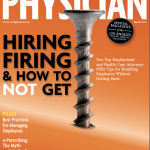Consider the following scenarios involving medically necessary services for Medicare or Medicaid patients: (1) a medical group learns that its outside billing service has incorrectly used the physician’s office site of service code when billing Medicare for hospital consults; (2) an imaging center finds out it did not have adequate…
Contemplating a sale? Legal expert Jeremy Miller outlines some of the key decisions professionals may make prior to and during negotiations. When contemplating the sale of a group, savvy professionals will know what entices potential buyers so they are in a strong position to negotiate a sale and determine whether…
The Centers for Medicare and Medicaid Services (CMS) released the final regulations for Medicare Accountable Care Organizations. CMS also announced that it would accept applications for an Advance Payment Model ACO designed to provide support to physician-owned and rural providers which wish to operate as Medicare ACOs. The final Medicare…
CMS’ Center for Medicare & Medicaid Innovation (CMMI) announced today that it is extending the deadline for Model 1 of the Bundled Payments for Care Improvement initiative. The new deadline to submit a Model 1 Letter of Intent is October 6, 2011, and the deadline to submit the Model 1…
On March 31, 2011, the Centers for Medicare and Medicaid Services released its long awaited proposed rules for Medicare Accountable Care Organizations. The draft rules, which are 429 pages long, implement Section 3022 of the Patient Protection and Affordable Care Act establishing the Medicare Shared Savings Program. The regulations are…
Virtually every medical practice has employees, whether other physicians, nurses or office staff. While physicians rightly fear being sued for medical malpractice, or for a HIPAA violation, the reality is that your practice is more likely to be sued by a disgruntled current or former employee. However, unlike malpractice suits,…
The Patient Protection and Affordable Care Act (PPACA) and the Health Care and Education Reconciliation Act of 2010 (HCERA) provide the federal government with new tools and funding to prevent, root out and punish fraud and abuse by providers and suppliers. Read Jeremy Miller’s entire article here: “Fraud Busters,” Los…
Physicians were facing daunting challenges before the passage last March of the Patient Protection and Affordable Care Act: declining reimbursement, rising overhead, increasingly burdensome government regulation, and a severe recession. Health care “reform” will likely only exacerbate these pressures. As a result, many physicians are in a state of high…
The Patient Protection and Affordable Care Act (P.L. 111-148) and the Health Care and Education Reconciliation Act of 2010 (P.L. 111-152), which became law in late March 2010; contain a number of provisions that will affect employers in the short and long term. Three areas of great interest (and concern)…
National Health Care Reform — Key Provisions for Providers The Patient Protection and Affordable Care Act (PPACA) and the Health Care and Education Reconciliation Act of 2010 (collectively, the “Health Care Reform Law”) are now the law of the land. The controversial legislation, the most important for the health care…
Applying for a Medicare provider number can be a daunting process. Medicare has very strict rules which, if not followed, can cause the issuance of your number to be delayed or even denied and prevent you from billing and collecting for the services you render to your Medicare patients. To…
“Employment Agreements and Other Working Relationships,” Representing Physicians Handbook, Second Edition, American Health Lawyers Association
With declining reimbursement and increasing overhead and compliance costs, building a successful medical practice is tougher than ever. The last thing physicians need is costly legal problems. In my experience, many of the legal wounds suffered by physicians are self-inflicted. This article discusses areas where physicians regularly get themselves into…
A well-prepared employment agreement ensures that physicians and their groups understand what each expects of the other. Here are 10 key considerations. Learn more about the 10 key considerations at: Better Employment Agreements Southern California Physician, September 2007
A carefully drafted buy-sell agreement is essential for a medical group’s long-term well-being. Here are seven key consideration. Read more at: Better Buy-Sell Agreements Southern California Physician, August 2007




